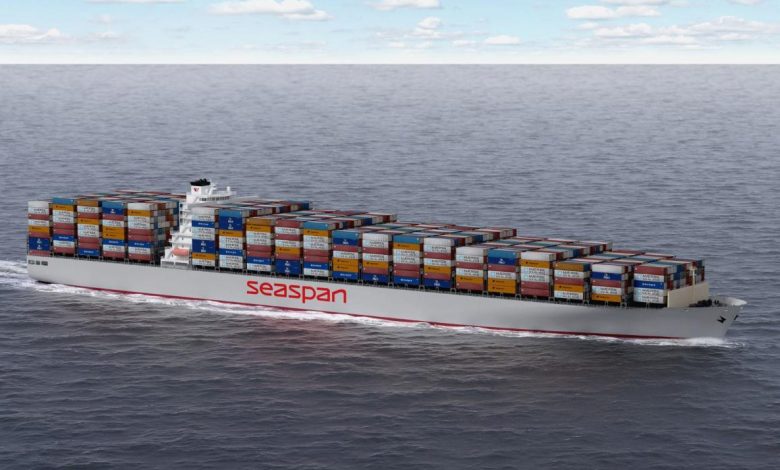Seaspan chairman slams Wang and Porter for failing to grab boxship bargains

Gerry Wang and Graham Porter stand accused of failing to snap up containership bargains while at the helm of Seaspan, the world’s largest independent lessor of boxships. The charge comes from the company’s chairman, David Sokol, who took over Seaspan 10 months ago.
“If I have a criticism of the prior Seaspan team, it was had they had their balance sheet in order two years ago, they could have done a tremendous amount of purchasing of assets over the last 18 months at bargain prices,” Sokol told Bloomberg in an interview yesterday.
Sokol, the former chairman of Berkshire Hathaway’s utility operations, took over at Seaspan in July last year as part of a major management reshuffe that saw its co-founder, co-chairman and CEO, Gerry Wang, resign. A few months prior to Wang’s departure, key board member Graham Porter had also chosen to stand down at Seaspan.
Sokol was speaking to Bloomberg following news that its new shareholder, Fairfax Financial Holdings from Canada, had decided to double its initial $500m investment in Seaspan. The investment sees Fairfax’s 50% owner Prem Watsa, replace the Washington family as largest owner of Seaspan.
Sokol said the company plans to use the proceeds from the transaction to look at consolidation in the containership industry.
This is not the first time Sokol has attacked Seaspan’s former management. During a first quarter earnings call with analysts earlier this year, Sokol lashed Wang and Porter for their alleged distant management techniques.
Sokol was quoted as saying: “Given the shortcomings of our previous senior management team, it was necessary for Seaspan to issue equity in 2017…to strengthen and stabilise our balance sheet and credit ratios.”
Later in the analysts call Sokol said: “You know, historically the company was run a bit by kind of remote control. The two senior managers tended to operate out of Asia or Europe depending on where their homes and that were and frankly had very little day-to-day interaction with the overall team particularly in Vancouver and other parts of the world. And you know, that develops a very odd set of dynamics, particularly when they’re not hands-on managers. And I think unfortunately, when I came in last summer it was clear that the overall planning and execution of the business plan was not terribly detailed and frankly in my view not well executed — not because the people didn’t want to perform well.”

The Berkshire Hathaway style in management hits shipping.
THis is likely to become very interesting.
The Warren Buffett style – careful attention to detail and closely targeted management objectives, with particular attention to cash flow, to the balance sheet and to what is cheap – hits shipping, which has tended to consist of people who can spot a bargain in one corner and people who can run a business in the other.
This is going to be very interesting.
The comment is totally uncalled for. Graham’s approach in late 90s put the company ahead of all other companies with its first mover advantage. And post 2008, Graham’s approach to new vessel ordering saved the company from owning too many mid-size ships with low charter potential for the next 10 years. Perhaps Graham & Team decided not to build out further given their previous large orderbook buildout. But that is a drop in the bucket compared to the value that was preserved. Perhaps the “new management” would have preferred to be sitting on a company like DAC or any of the many other owners out there that had no access to capital for about a decade post GFC, and which are still struggling to get themselves back on the right foot. Articles such as the above should get a response or added historical perspective before going to press!